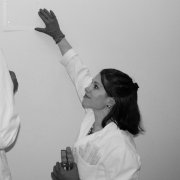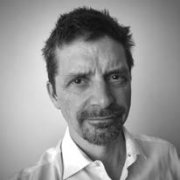|
|
 |
A collaboration between the Council for Scientific and Industrial Research (CSIR) and the SARChI Chair in Spatial Transformation (Positive Change in the Built Environment),Tshwane University of Technology (TUT)
SYMPOSIUM COORDINATORS
• Dr Jako Nice (CSIR), jnice@csir.co.za
• Prof Amira Osman (SARChI Chair In Spatial Transformation – TUT), OsmanAOS@tut.ac.za
The inaugural symposium on Healthy Buildings and Healthy Cities for South Africa, hosted virtually South African Standard Time (SAST).
|
|
Healthy Buildings, Healthy Cities ‘21
South Africa Virtual Symposium
|
The impact of buildings on human health is profound, and has a direct cost impact on performance and output for its users. Infection and risk from contamination due to building design can be prevented. Healthy Building planning address design thinking on the current COVID-19, but also related disease burdens in South Africa and globally. Integrating health-related concepts into the traditional architectural tertiary education, building landscape and city making is core to changing the paradigm and skill the current and next generation of architects will require.
The HB&HCLab initiative through the Healthy Buildings, Healthy Cities ’21 symposium aims to stimulate new
thinking and build research and development initiatives to drive healthy building design and construction.
The creation of healthy living environments at building, neighbourhood and city scale is imperative. COVID-19 and related health care associated infections (HAI), nosocomial disease burdens (TB etc.) and the
contamination role of the built environment in Southern Africa and globally positions this work as critical. With
the global COVID-19 pandemic, much has been debated about urbanisation, cities and density; this symposium on diverse health related themes aims to stimulate transdisciplinary thinking, research and future planning and design for health.
Click on the link below to register:
HBHC Lab Symposium – Pretoria Institute for
Architecture (pia.org.za)
|
|
|
 |
|
• Human Health and buildings, Building Ecology, Building Microbiomes
• Human Health and well-being Inclusive architecture for human health and well-being
• Built environment and microbial exposure at varying urban scale
• Cities, neighbourhoods, and communities in an era of health awareness
• Healthcare design: Adaptation, reuse, and appropriation
• Architecture education, new paradigm for transdisciplinary platforms
|
|
|
|
The conference will be hosted online, reaching to global audience but primarily focused on the South African and African built environment practitioner, academic and student.This symposium is a collaboration between the Council for Scientific and Industrial Research (CSIR), Tshwane University of Technology (TUT) and the Pretoria Institute of Architects (PIA). Supporting Continuation Practise Development (CPD) in South Africa.
Course date: 10 May 2021, (08:45 – 15:00)
Venue: Virtual - ZOOM (1000 participants)
PIA Members : R150.00
Non-Members: R250.00
Undergrad Students: Free
CPD: 0.5 CPD Credits in Category 1
REGISTER ONLINE NOW
Click on the link below to register:
HBHC Lab Symposium – Pretoria Institute for
Architecture (pia.org.za)
|
|
|
|
Dr Gwynne Mhuireach
Prof. Peter Russell
Mr Philip Astley
Prof. Amira Osman
Prof. Magda Mostafa
Dr Jaco Nice
|
|
|
|
 | Dr Gwynne Mhuireach is currently a postdoctoral scholar in the Institute for Health in the Built Environment. She was born and raised on a small farm near Klamath Falls, Oregon, USA. Her formal education includes a B.S. in Biology, Masters in Architecture, and Ph.D. in Landscape Architecture. Gwynne currently studies microbial communities associated with plants and soil in urban environments, as well as those found inside buildings. Ultimately, she hopes to develop strategies that urban planners and designers can use to improve the design and management of future cities where the majority of global human populations will live.
|
|
|
|
Prof. Peter Russell was born in 1963 in Ottawa, Canada. He graduated from high school in 1980 in Calgary, after which, he lived aboard a sailboat on the west coast of the United States and Mexico. He studied Engineering before turning to Architecture. In 1990, he moved to Switzerland and in 1992 to Berlin, Germany where he worked as an architect and as a consultant for digital design integration. He began lecturing on CAAD at the University of the Arts, Berlin (UdK) in 1995. Notably, he worked as coordinating architect on the Reichstagspräsidentenpalais, part of the German Bundestag in Berlin.
Between 1997 and 2001, Peter Russell worked with Prof. Dr. Niklaus Kohler in the Institute for Industrial Building Production (ifib) at the Technical University of Karlsruhe (now K.I.T.). He taught computation in architecture and carried out research in virtual education and the visual depiction of non-geometric building information.
In 2002 he was called to the RWTH Aachen University as Professor for Computer Supported Planning in Architecture (CAAD). In research, he has dealt with digital student mobility, virtual environments, building intelligence and building information modelling
(BIM). As part of the “learning-by-building” pedagogy, CAAD led a university-wide team in the Solar Decathlon Europe 2012. Between 2005 and 2011, Peter Russell served as Dean of the Faculty of Architecture and from 2007 to 2010, was Chairman of the Dean’s Council of the RWTH Aachen.
He served as vice-chairman of the German Architecture Dean’s Council and has had various roles in leadership of higher education in Europe. He chaired the German Council on Accreditation in Architectural Education (ASAP) and was named to the Association for European Education in Architecture (AEEA/EAAE) Council. He is a founding member
of both the working group for Architectural-Informatics (AK•AI) and the European Architectural Research Network (ARENA). Peter also serves on the Chinese Council of Resilient Cities based in Tianjin. At TU Delft, he was Dean of the Faculty of Architecture and the Built Environment from 2015 to 2018 and currently holds the chair for Computation in Architecture there. Since September 2020, Russell is Dean of the Institute for Future Human Habitat Studies (iFHHs) at the Tsinghua Shenzhen International Graduate School (TSIGS) and is tenured in the School of Architecture at Tsinghua University as chairholder for Computation in Architecture.
Peter enjoys using pen and paper to draw solutions, employing computation to better these and taking tools in hand to build things that last.
|
|  |
|
 |
|
 | Philip a Chartered Architect, Research Fellow and Consultant developing project requirements for the adaptable design of space and systems in healthcare environments. For Emergency Care settings Philip has developed design concepts of acuity-adaptable space planning on behalf of the Royal College of Emergency Medicine in response to rapid changes in patient flow, monitoring technology and mobile equipment.
In 2020 he investigated for the UK NHS, as part of a wider study into off-site manufacturing, cardio-vascular operating theatre design utilising post-robotic fusion imaging technologies within standard theatre space. This has the potential to increase hybrid-theatre capacity post-COVID with increased patient safety. In his role as lead for the Biosafety Design Initiative at UCL he has undertaken post-project evaluations on high level infectious disease facilities and previously at the Great Ormond Street Children’s Hospital multi-department surgical facility.
Previously with the UCL Division of Infection and Immunity he has developed requirements for TB respite care for the single homeless and has researched diagnostic environments in custodial care (UK and Tanzania). Within the last 10 years he has been Principal Investigator on 4 major UK Research Council studies focussed on project requirements, off-site manufacture innovation, strategic planning for large sites and infrastructure through the application of scenario planning at the front end of project discussions. He has a research and design consultancy in the UK and in South Africa completing design requirements for two BioTech laboratories in Cape Town who now produce the quickest and cheapest PCR COVID tests in the Cape region. He has produced concept designs for rapid diagnostic space in mobile clinics for a Cape Town supplier. He likes to hike in the mountains from his home in the Overberg.
|
|
|
 |
|
Amira Osman is a Sudanese/South African architect, researcher, academic, activist, public speaker, and author. She is now gaining experience in the world of publishing. She is a Professor of Architecture at the Tshwane University of Technology. She currently holds the position of SARChI: DST/NRF/SACN Research Chair in Spatial Transformation (Positive Change in the Built Environment).
Amira believes that the architectural profession has a critical role to play in the achievement of buildings, neighbourhoods and cities that are more equitable, beautiful and functional – creating environments that are lovable, increasing opportunities and offering people a better chance at improving their lives and livelihoods. The belief that the profession has the potential to offer both technical and social expertise towards these aims is the driving force behind Amira’s work – indeed, she has spent most of her career advocating for these principles.
Amira obtained a PhD in Architecture from the University of Pretoria in 2004. She was
a convener for the World Congress on Housing (2005) and the Sustainable Human(e) Settlements: the urban challenge (2012), she served as UIA 2014 Durban General Reporter and Head of the Scientific Committee for the International Union of Architects (UIA) and the South African Institute of Architects (SAIA), she was Chair of the Local Organising Committee for the 9th International Conference on Appropriate Technology
(9th ICAT)(2020). She is a joint coordinator for the international CIB W104 Open Building Implementation network. Amira has extensive experience curating international events, coordinating complex programmes and exhibitions in terms of design, conceptualising content and managing diverse teams.
|
|  |
|
 |
|
 | Speaker Prof. Magda Mostafa
|
Magda Mostafa is an Associate Professor of Design in the Architecture Department of AUC, where she leads Design Studio II, which focuses on the vocabulary of contemporary Egyptian architecture. She is also currently the Co-Director of the UNESCO-UIA Education Commission and Validation Council, which is a global think-tank tasked with setting architectural education policy and practices as well as upholding threshold standards
of excellence.
She is a Design Associate at the Cairo-based practice, Progressive Architects where she specializes in autism inclusive design. She is the author of the Autism ASPECTSS™ design guidelines, the world’s first research-based design framework for autism worldwide. ASPECTSS™ has been presented at the United Nations as a framework for international autism design policy, as well as showcased in lectures and keynotes at Harvard’s GSD, the National Autistic Society in the UK, Ireland’s AsIAM and the World Autism Organization.
It was awarded the UIA International Research Award in 2014 and was the subject if her well-received TedTalk in 2015. Her work on autism is widely published worldwide, and she has been called “one of the world’s pre-eminent researchers in autism design” by the international architectural media. To date, the ASPECTSS Design Index has informed 12 architectural, urban and artistic projects in 4 countries, been a key resource for 10 policy papers, guidelines and regulatory documents at national and regional levels and has informed the research of dozens of graduate and undergraduate students in 18 countries. Through various consultancies ASPECTSS™ has been used to design projects spanning five continents and ranging in scale from interior classroom retrofits to urban-scale neighbourhoods in Europe, the US, Egypt, Saudi Arabia, Australia and the UAE. Information about her work can be found at http://www.autism.archi
She has recently joined the New York-based think-tank and inclusive practice MIXDesign as a member of their MIX Neurodiversity Initiative and as part of their team as an autism expert. Their work together includes, among other topics, intersectional reflections on their ethos and areas of expertise with the architecture for the pandemic world of Covid-19, which was the subject of a recent NYTimes Magazine article. Her other field of research looks at another form of marginalization through the study of informal settlement, and in 2015 she published the Juxtopolis© Pedagogy, a studio based research/design methodology. The Juxtopolis© Pedagogy’s resultant work has been presented and exhibited worldwide, including at Columbia University’s GSAPP; Durban, South Africa; and most recently at the 2016 Venice Biennale. It is also an integral part of her studio teaching at AUC. She is co-author of the book “Learning from Cairo” and her Juxtopolis Pedagogy was featured in Columbia University’s book series on Architecture and the City “The Arab City: Architecture and Representation” by Amale Andraos and Nora Akawi.
|
|
|
 |
|
Dr Jako Nice is a senior researcher at the CSIR, and professional architect with 15 years’ experience. Dr Nice specialises in healthy buildings and healthcare infrastructure, architecture and engineering approaches to infection control for surface and airborne contagion in the built environment, and the microbiology of the built environment
(MoBE). Furthermore, he is involved in Alternative building Technologies (ABT) implementation and sustainable buildings.
He has worked both in South Africa and internationally on a broad range of projects: residential, commercial, hospitality, healthcare and religions buildings. He is an author of numerous norms and standards guidelines for healthcare infrastructure, peer reviewed publications and invited conference speaker. He is masters’ year student supervisor
and holds a doctorate degree in architecture at the University of Pretoria on MoBE investigating building microbiomes and architecture through applied spatial analytics aimed at reducing healthcare-associated infections (HAI).
|
|  |
|
 |
|
|
|
|
|
|
|
|